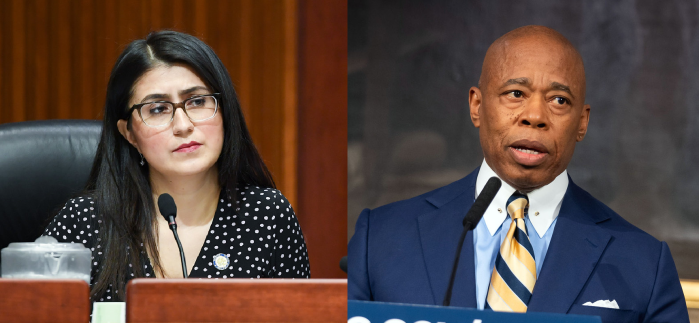By Anna Gustafson
A recently released report by U.S. Sen. Kirsten Gillibrand (D-N.Y.) shows Queens seniors have been harder hit by financial scams than those living almost anywhere else in the state, and the legislator hopes her new five-point plan will help to combat the fraud she said is plaguing New York.
Queens had 305,926 seniors who reported being victims of financial fraud since 2008, which is a higher number than any other county in the state with the exception of Brooklyn, Gillibrand said. Borough seniors lost more than $20 million collectively as a result of the scams, according to the senator.
There were 314,368 seniors in Brooklyn who reported falling victim to consumer fraud, losing more than $21 million, Gillibrand said.
“Seniors have spent a lifetime saving and preparing for the golden years, and they deserve financial security and peace of mind,” Gillibrand said. “But far too many seniors are being lured into bad investments and getting scammed by criminals out of their savings and benefits.”
The senator released a plan Sept. 16 that proposes to increase penalties for individuals who commit fraud against seniors; create a national grant program for states to protect seniors from misleading financial advisers claiming to specialize in seniors; protect Social Security and veterans’ benefits from debt collectors; stop abusive mail, telemarketing and Internet fraud against seniors; and create workshops on financial literacy to empower and protect more seniors.
“Seniors should have confidence that their savings and investments are in the hands of real experts, not criminals,” Gillibrand said.
She introduced the Senior Investor Protections Enhancement Act, legislation which would charge an additional $50,000 civil fine for each violation committed against a senior.
The senator said the Senior Investor Protection Act would help provide funding to states to hire staff or acquire technology to prosecute fraudulent investment advisers, train regulators and law enforcement officers to prevent the scams, and create and distribute educational materials for seniors so they can avoid being lured into bad deals.
Gillibrand said more than 80 percent of the 51 million Social Security beneficiaries in the country receive payments through direct deposit, which allows debt collectors to get court orders to freeze and garnish the bank accounts of seniors who owe them debts.
The senator’s proposed Illegal Garnishment Prevention Act would end promoting direct deposit for Social Security and veterans’ checks until the U.S. Treasury Department institutes new rules that would prevent banks from enforcing collection orders on accounts with protected benefits so the funds cannot be illegally seized.
The Senior Financial Empowerment Act, proposed in Gillibrand’s plan, would direct the federal government to establish a “one stop shop” for consumer education on mail, telemarketing and Internet fraud against seniors; establish a grant program to give states and local organizations resources to initiate local mail, telemarketing, and Internet fraud prevention and education programs for seniors; and declare a National Senior Fraud Awareness Week in May.
The last part of Gillibrand’s plan is a proposal to provide workshops for seniors on financial fraud that would be led by a panel of experts who could help the individuals gain a basic understanding of financial literacy, recognize risk factors for financial exploitation and learn about who is qualified to help them if they are victims of fraud.
Reach reporter Anna Gustafson by e-mail at agustafson@cnglocal.com or by phone at 718-229-0300, Ext. 174.


































